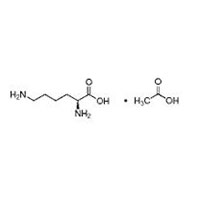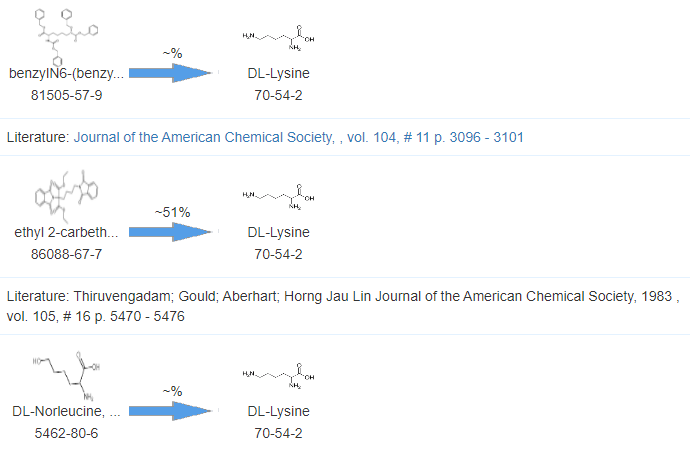Synonyms
MFCD00039069
H-LYS-OH ACOH
L-Lysine acetate (1:1)
L-Lysine, acetate
L-LYSINE AC
H-Lys-OH Acetate
LYSINEACETATE,USP
LYSINE ACETATE
Lysine acetate salt
Product Description
L-lysine acetate is a food-grade amino acid that is commonly used in the food industry as a nutritional
supplement and flavor enhancer. It is a salt form of the amino acid L-lysine, which is essential for
human health and must be obtained through the diet.
As a nutritional supplement, L-lysine acetate is added to a wide range of processed foods, including
baked goods, dairy products, and meat products, to help boost the protein content and improve their
nutritional profile. L-lysine is an important building block for protein synthesis and plays a key role
in the growth and maintenance of muscle tissue, as well as the formation of collagen, a protein that
supports healthy skin, hair, and nails.
In addition to its nutritional benefits, L-lysine acetate is also used as a flavor enhancer in many food
products. It has a slightly sweet taste and is often added to savory products, such as soups, sauces,
and meat products, to improve their flavor and aroma.
L-lysine acetate is generally regarded as safe for consumption in moderate amounts and is well-tolerated
by most people. It is also found naturally in many foods, including meats, dairy products, and
legumes.
In addition to its use in the food industry, L-lysine acetate is also available as a dietary supplement.
It is often marketed as a supplement that can help support immune function, promote healthy skin and
hair, and improve athletic performance.
Overall, L-lysine acetate is a valuable food additive that provides a range of benefits to the food
industry. It is commonly used as a nutritional supplement and flavor enhancer in processed foods, and is
generally safe for consumption in moderate amounts. As with any food additive or dietary supplement, it
is important to use L-lysine acetate in accordance with industry guidelines to ensure its safety and
efficacy.






